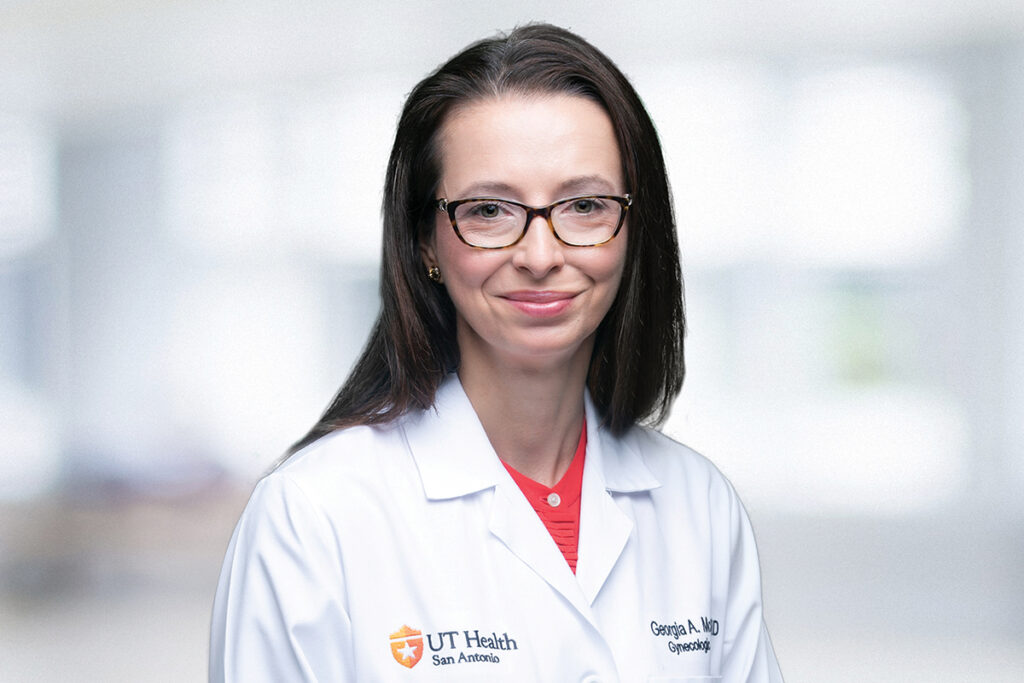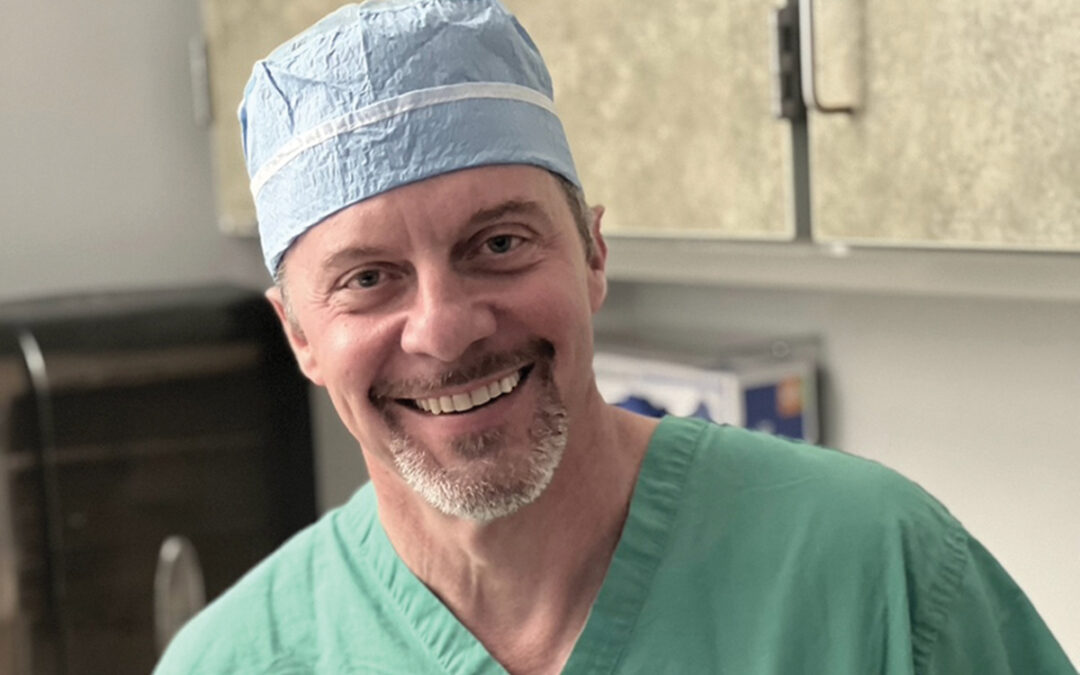
“The warning signs are different for each gynecologic cancer,” explains Georgia McCann, M.D., a board-certified gynecologic oncologist. Dr. McCann is an associate clinical professor and chief of the Division of Gynecologic Oncology at UT Health San Antonio and the leader of the gynecologic oncology program at Mays Cancer Center, home to UT Health San Antonio MD Anderson Cancer Center.
“Women with cervical cancer can experience heavy periods, bleeding between periods, or sometimes bleeding after intercourse.”
Endometrial cancer most commonly presents as bleeding after menopause. “It’s important for women to know that they should never experience vaginal bleeding after menopause. Even the slightest amount of vaginal bleeding or blood in the urine warrants further evaluation.” When a woman presents with post-menopausal bleeding, the gynecologist will perform a transvaginal ultrasound to evaluate the endometrial lining of the uterus or perform an endometrial biopsy.
“Ovarian cancer is a little bit different. While some women can have bleeding after menopause, it’s not the most common presenting symptom. In most cases, women with ovarian cancer will experience abdominal bloating and feeling the urge to urinate frequently. They’ll sometimes experience early satiety, or feeling full quickly when eating.”
Dr. McCann encourages women to ask questions about their test results so they can be active participants in their own healthcare decisions. They should feel empowered to speak up if they don’t understand the terminology the physician is using in the answers and ask the provider to use simpler language. “It’s important for women to feel satisfied with the answers they’re getting,” Dr. McCann states.
“If women are told their results are normal, but they continue to experience symptoms, it’s important for them to know that’s not normal,” says Dr. McCann. “If those symptoms persist, it’s important to go back to the doctor and be reevaluated.”
When a woman is diagnosed with some form of gynecologic cancer, she may have more than one treatment option available to her. This is another opportunity for women to take active roles in their healthcare decisions. For that reason, informs Dr. McCann, it’s advantageous for women to understand their results.
It’s also important for women to know their medical history. For example, diabetes, high blood pressure, a history of blood clots, or a history of stroke can affect a woman’s cancer treatment. “When we’re discussing cancer treatment, whether that’s surgery, chemotherapy, or radiation therapy, one of the most important things physicians consider are other medical conditions that may impact treatment.
“They should also know the medications they take every day and why they take them,” adds Dr. McCann. “All of that is carefully considered when developing cancer treatment plans. The more familiar a woman is with her medical history, the better she can advocate for herself in all aspects of her treatment.”
For more information or to make an appointment, please call (210) 450-9500 or visit MaysCancerCenter.org/Appointments. Learn more about Dr. Georgia McCann at MaysCancerCenter.org/GeorgiaMcCann.
Purple Heals is a support group that provides an open space for women with gynecologic cancers who share similar experiences to ask questions, encourage one another, and help cope with some of their frustrations. Women who are not Mays Cancer Center patients are welcome to join.
Purple Heals Support Group Page: MaysCancerCenter.org/PurpleHeals.









0 Comments